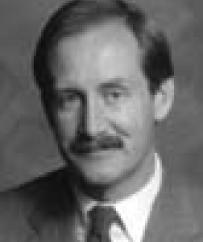By Rick Cole, Southern California Director, Local Government Commission and former Mayor of Pasadena

Rick Cole: “Decisions about highways, transit, water, sewers, garbage, airports, schools, colleges, pollution control, ports, taxes, fees and other crucial issues are made somewhere else. That often makes ‘local control’ an illusion.”
Local cities cherish control over local land use. City councils fiercely battle any regional, state or federal intrusion into "local control." Sometimes local citizens themselves take decisions into their own hands. In Arcadia, for example, enough signatures were gathered to force a citywide vote on the zoning for the Santa Anita Race Track and shopping mall after the owners proposed a giant "entertainment center" there.
Cities exert "local control" over zoning and building permits. But decisions about highways, transit, water, sewers, garbage, airports, schools, colleges, pollution control, ports, taxes, fees and other crucial issues are made somewhere else. That often makes "local control" an illusion.
In a complex and sprawling region, many vital decisions affecting local land use aren't made at City Hall or at the ballot box. They're made in obscure meetings, by decision-makers that local voters don't know and haven't elected. They are made in response to lobbying, market forces and financial pressures that are beyond the reach of local citizens.
Start with earthy essentials. Homes and businesses require sewers and garbage collection. Yet in the two years I served on the Los Angeles County Sanitation Districts, not a single citizen spoke at any of our public meetings. Not a single reporter ever attended, even though the agency's budget was larger than the City of Pasadena's and it had capital reserves of over $1 billion in the bank.
Take water. A bruising battle is shaping up between San Diego and Los Angeles with far more lasting significance than the baseball pennant race. San Diego has long been a junior partner at the Metropolitan Water District. But its ambitious growth plans depend on the murky politics of water rights and the decisions of a unwieldy Board of Directors chosen by obscure water districts across the Southland.
Airports? Since Burbank voters overthrew their probusiness city council majority, the battles between therepresentatives of the three cities that run the Burbank Airport have been in the news. But who controls the Ontario Airport, the hub of that rapidly-growing area? The city of Los Angeles, thirty miles away.
Who makes decisions in Diamond Bar about rules on everything from dry cleaners to manufacturing plants across the Southland? The South Coast Air Quality Management District. But even the person answering the phones at the Clerk of the Board was stumped when asked how the 12 member board is chosen (one by the governor, one by the speaker of the assembly, one by the senate rules committee, four by the county supervisors of each of the district's four counties and five by groups of cities throughout the district.)
A special state law stripped South Pasadena of the right to decide whether it will be divided by the extension of the 710 freeway, but even Caltrans, a state agency, doesn't control whether the freeway will ever be built. They must get approval from the Federal Highway Administration in Washington, which controls the funding.
Of course the most glaring example is the ham-handed influence of state legislation in the wake of Proposition 13. The property tax shifts mandated in Sacramento have left cities overly dependent on sales tax revenue, sparking destructive border wars over sales tax generators like auto malls, shopping centers and entertainment complexes. This "cash box zoning" has forced communities to swallow projects they would never consider except out of desperation.
These are only a few of the over-lapping and interconnected governmental entities that decide the future of local communities where we live. Since we are a democracy, they are supposed to be accountable to the people. But in reality, the people don't even know what they are or what they do. They certainly don't know who runs them or even how they are chosen.
The Constitutional Revision Commission tackled this confusing stew of 7,000 governments in California with a clever strategy.
- Let local voters sort out consolidation by election.
- Give to the new streamlined jurisdictions the control over local taxation that cities lost after Proposition 13.
The fate of those recommendations was the legislative trash can. Since the Governor and the Legislature answer to special interests and pander to hot button issues, overdue governmental reform goes unaddressed.
The problem is not going away. With a recovering economy, the growth wars will intensify across the Southland. Local voters will again confront the mysterious and haphazard limitations on local control.
It is fruitless to predict the outcome. Perhaps the anger will be channeled into my myriad local battles and never coalesce into a grass roots revolt. Or a spark like Proposition I 3 may spread a prairie fire that radically alters the landscape. Less likely is that we will elect a Governor in 1998 with a focus on governmental reform. Least likely of all is that enlightened public and private leadership will push for regional reform.
The bankruptcy of Orange County seemed like a unique opportunity to realign government along lines that make sense for the 21st Century. But that has come and gone with no fundamental reform. The slow collapse of Los Angeles County seems not to bother anyone either.
There is one interesting opportunity, however. What if the race for Mayor in the City of Los Angeles tackled these issues instead of diverting them into a power struggle over the make-up and power of the charter study committee? What if a serious challenger asked serious questions about governance at the local level?
Any takers?
- Log in to post comments



